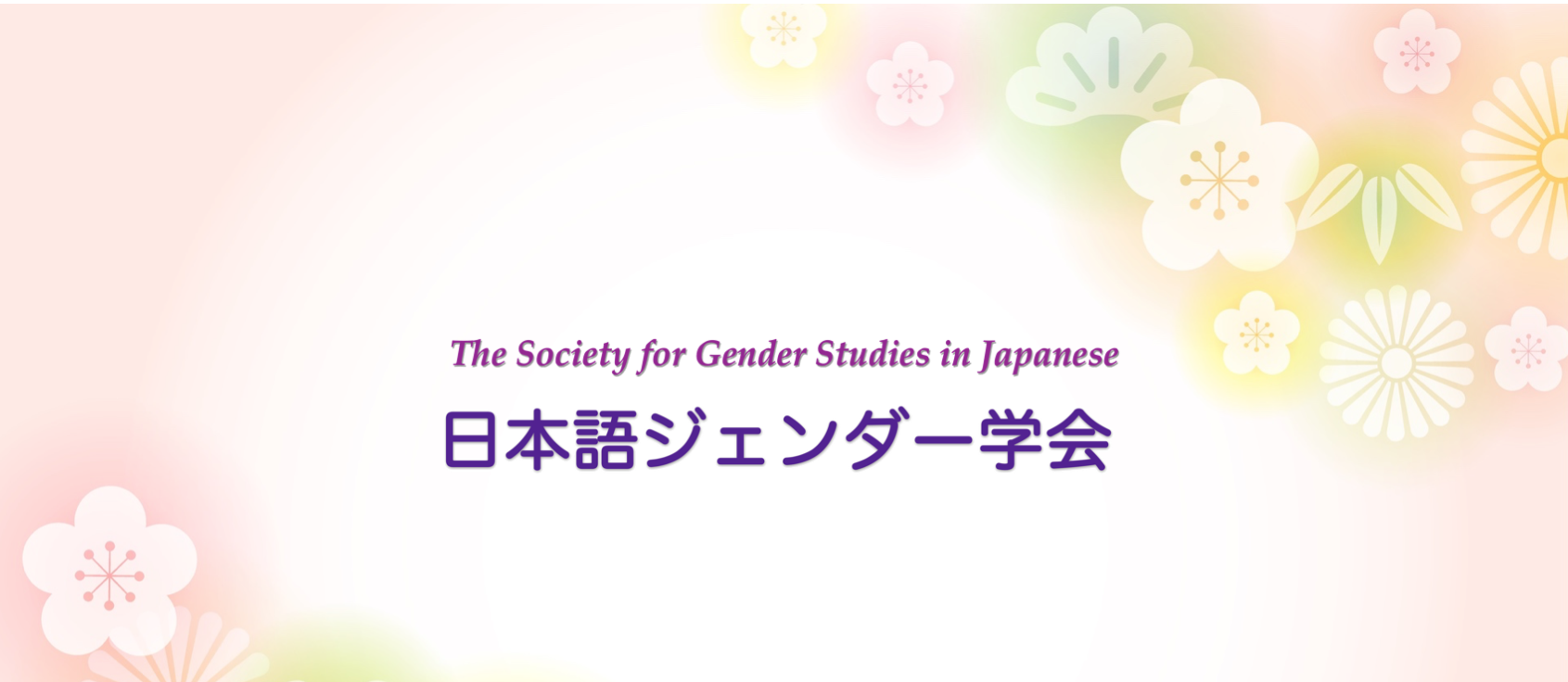【エッセイ】
A thought about the future activities
of the SGSJ (the Society for Gender Studies in Japanese)
Katsue Akiba Reynolds
University of Hawaii
When Prof. Sasaki and her colleagues newly founded the SGSJ in 2000, I wondered, “How could it be different from other groups studying gender in Japanese?” One possibility was that it would be open to a more global community of people who are concerned about the gender aspect of the Japanese language and culture. The fact that SGSJ has held several seminars outside Japan involving non-Japanese institutions, scholars and students may be a promising indication. It will hold a great deal of appeal for those engaged in academic endeavors concerning Japan and Japanese.
I have noticed the following in the Japan Foundation Email Magazine, No. 166.
This year (Aug 21) the Japan Foundation organized an international conference "Potential of New Global Network" in cooperation with Asahi Art Festival Executive Committee, in Tokyo (The Japan Foundation JFIC Hall Sakura, Capacity: 100 people).
Language: Japanese
Global networking! Yes. It sounds a key for future activities of SGSJ or any Japanese academic association for that matter. It may not be essential to gather in a place outside Japan since networking can be done through inter-net.
Well, in that case, what is difficult may be the language. The Japan Foundation had an international conference in Japanese, but it has the fund for interpreters. Associations likeSGSJ cannot afford professional interpreters. How can SGSJ open the forum to Japanese and non-Japanese without interpreters?
Japan may be geographically a rim-land (“辺境の国”), not a heart-land. Its culture, however, has a long, long recorded history and its language is one of the well-known modern languages of the world.
I don’t mean that we should become nationalistically biased in favor of the Japanese language, but we should be aware of the importance of this language to us, the Japanese, whether we live in Japan or outside Japan.
わたしは、詩人や作家の言語論に興味を持っています。彼らは、言語の深い部分に触れながら言語を実践して生活しています。一時は日本・日本語から逃げようとしていたという村上春樹のエッセイ集『やがて哀しき外国語』(1997年単行本として出版された)は、彼がプリンストン生活時代のアメリカ観察ですが、「あとがき」で、日本語についてのある重要な気付きについて語っています真剣に言語問題に取り組んでいる様子がひしひしと伝わってきます。
「ボクはべつに日本語型の言語がより優れているとか、そういうことを言っているわけではない。日本語が外国語に比べていかに美しく、また優れた資質を持った言語であるかを言い立てる人は世間に数多いけれど、それは正しいことではないと思う。日本語がすばらしい言語に見えるのは、それが我々の生活から絞り出された言語であるからであり…。」
我々の生活から絞り出された言語‥‥。さすが、小説家です。わたしたち言語学分野の人間が「日本固有の歴史の中で構築された言語」などと固いことばで伝えてしまうことを、一般の日本語人の胸にぐっとくることばで表現してくれている。こういう感覚って、村上さんがヨーロッパやアメリカ、日本の外で生活する中でどうしたら自分の表現にあった日本語が書けるか格闘する中で研ぎすまされたものなのですね、きっと注1。
In any case, we live in an age of “globalization,” not only economically but also culturally. The natural disaster on March 11 has made us realize how important it is to think of our future in a global perspective. Japanese scholars of Japanese culture should deal with problems emerging in the interphase of Japan and the rest of the world.
Other languages, including English, should also make efforts to understand the values of different cultures reflected in different languages, but we are now concerned about Japanese, our language, 我々の生活から絞り出された言語‥‥。
What can we the SGSJ members do? First, it is meaningful to ask “Why should we study Japanese gender?" not only as an issue for Japanese women but also as an issue for everyone, men and women, Japanese and non-Japanese.
Then, we need to think how can it be actually done?
One practical suggestion: The SGSJ should encourage members to present papers
in English as well as in Japanese so that the SGSJ would look more open to non-Japanese people who want to participate in the forum.
わたし個人の考えを押し売りするつもりは毛頭ありません。「英語=アメリカの言語」という見方もあって、英語でのコミュニケーションを問題視する向きもあります。しかし、グローバル化を帝国主義だと考えようと考えまいと、グローバル化は進行しています。そんな同時代状況のなかで、みなさんにより有効にSGSJにコミットしていただくためのインセンティヴになれば、と思いました。そんなことについても会員のみなさんの会話が始まること—English or Japanese--を期待しています。
これまでのSGSJ のおつきあいで感じるのは、何かを発表してもそれにたいして反応がないことです。褒めてくれる人はいても、「わたしは、ちょっと違う経験があります」という発言がほとんどないことです、空しいくらい。「あなたは間違っています」と言って喧嘩を吹っかけてください、ということではもちろんありません。喧嘩っぽい発言する人、わたしも怖いです。相手を尊重しつつ自分を主張していく。それって大変なことですね。多様性の時代、多様な意見を出し合い、「聞き合って」いくことが大事だと思うんです 注2 。
PS:今日(9月24日)たまたま「第11回日本語ジェンダー学会」をグーグルしたら、ヤフーのブログが引っかかってきました。あの会に参加したらしい方(「表示名:U子」となっていました)が "My journey of gender and language studies” を好意的に聞いてくれたことが書いてありました。「翼」という方との女性差別についての短いやり取りがあったことを知って、とてもうれしかったです。みなさんの「エッセイ」に対してもいろいろ応答があったらいいですね。
注
1) 最近は外を見てきた目で日本・日本語を見る日本の文芸家も増えているので、単なる「日本文化特殊論」とは違う、こういう見方が日本語ネイティヴのなかに受け入れられるようになってきているようです。英語をつかったからといって、「国賊」だなんて言っていた時代ではない。日本語としっかり取り組んで、日本語のゆたかな可能性を引き延ばして、それぞれの表現したいことができるだけそのとおりに表現できるようにしていく。自覚的に日本語と苦闘していかなければ、日本語はグローバル化の波に飲み込まれてしまいます。(本文へ)
2) 詩人のしまようこさんから「聞き合う」という表現を学びました。「聞き合い」がなければ「言い合い」になってしまいます。『おんなと日本語』に江原由美子さん、しまようこ-さん、わたしの鼎談があります.お二人から貴重なお話をたくさんいただきました。その帰り道、「聞き合いになっていなかったわね」としまさんにお叱りをうけました。(本文へ)
2011年9月
